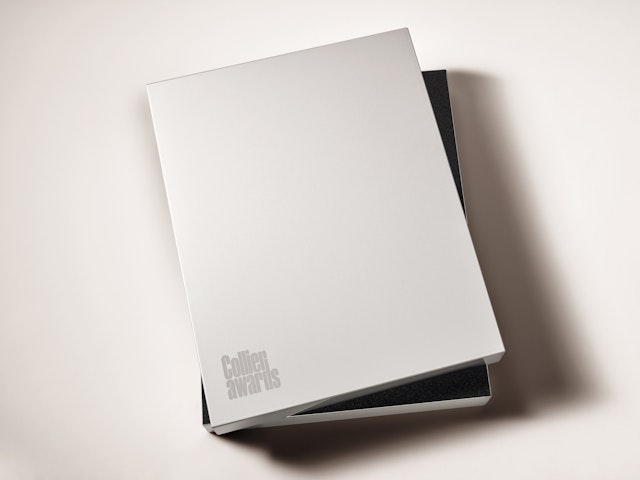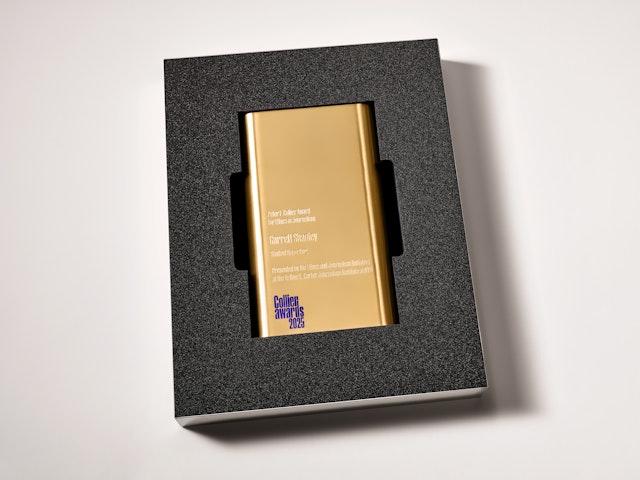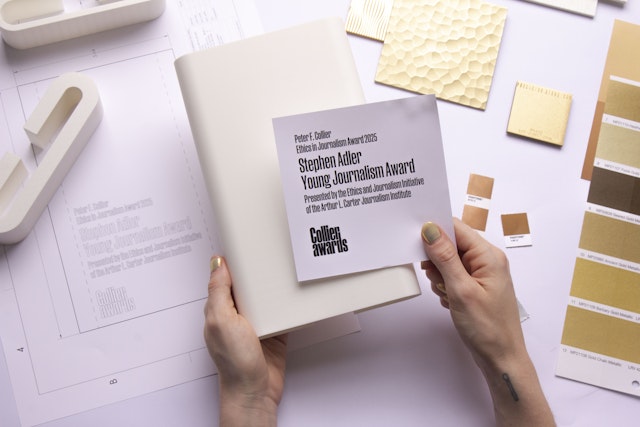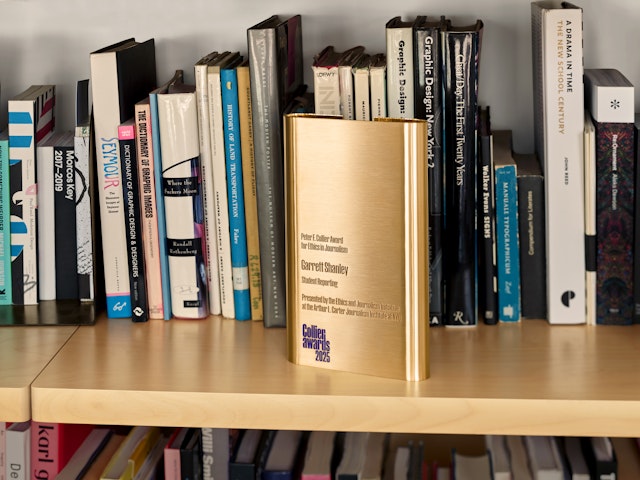


The awards come at a time when trust in the media is waning, and the pressures on journalists—from political interference to institutional censorship—are intensifying.





The form is derived from a single sheet of paper folded into the shape of a “C,” echoing the initial of the Collier name.


The Peter F. Collier Awards for Ethics in Journalism honor reporting that upholds the highest ethical standards—even when doing so comes at great personal, professional, or institutional cost. Named after the journalist and publishing executive Peter F. Collier, the award recognizes both student and professional journalists whose work embodies truthfulness, transparency, fairness, and moral clarity. The initiative was launched by the Ethics and Journalism Initiative (EJI) at the Arthur L. Carter Journalism Institute at NYU in 2025.
The awards come at a time when trust in the media is waning, and the pressures on journalists—from political interference to institutional censorship—are intensifying. EJI’s mission is to re-center the values of rigorous, ethical journalism: an approach that places honesty and humility above speed and spectacle.
To commemorate the award’s inaugural year, Pentagram partner Piotr Woronkowicz designed the physical Collier Award as a sculptural expression of the principles behind the prize. The form is derived from a single sheet of paper folded into the shape of a “C,” echoing the initial of the Collier name. The folded sheet—never fully closed, never entirely flat—represents the multidimensional nature of truth, the transparency journalism strives for, and the tension between openness and protection that defines ethical reporting.
A total of three awards were presented at the 2025 inaugural ceremony. Honorees included journalists from The Washington Post, The New Yorker, and The Guardian, alongside rising talents from leading journalism schools. Their work tackled difficult, often dangerous subjects—from police brutality in the U.S. to the ethical failures in global labor practices. Several projects took years to complete, underscoring a commitment not just to uncovering truth, but to doing so responsibly.
The Washington Post was honored for its series “The Amazon Papers,” an investigation that revealed systemic mistreatment of warehouse workers. The New Yorker’s Sarah Stillman was recognized for “The Drug War’s Collateral Damage,” a deeply reported piece on civil asset forfeiture. And The Guardian’s Annie Kelly was awarded for her work exposing forced labor across global supply chains. Student awards went to teams from Stanford, Northwestern, and NYU, whose investigative work challenged assumptions and modeled the kind of rigorous ethical reflection that the Collier Awards seek to amplify.
The Collier Awards are not merely prizes; they are statements of purpose. They are reminders that journalism can serve the public not just by telling stories, but by choosing to tell them right.
Client
New York UniversitySector
- Education
- Manufacturing & Industrials
Discipline
- Industrial/Product Design
Office
- New York
Partner
Collaborators
- Darrel Frost, identity
- Jason Pilarski, fabrication
- Grant Cornett, photography
